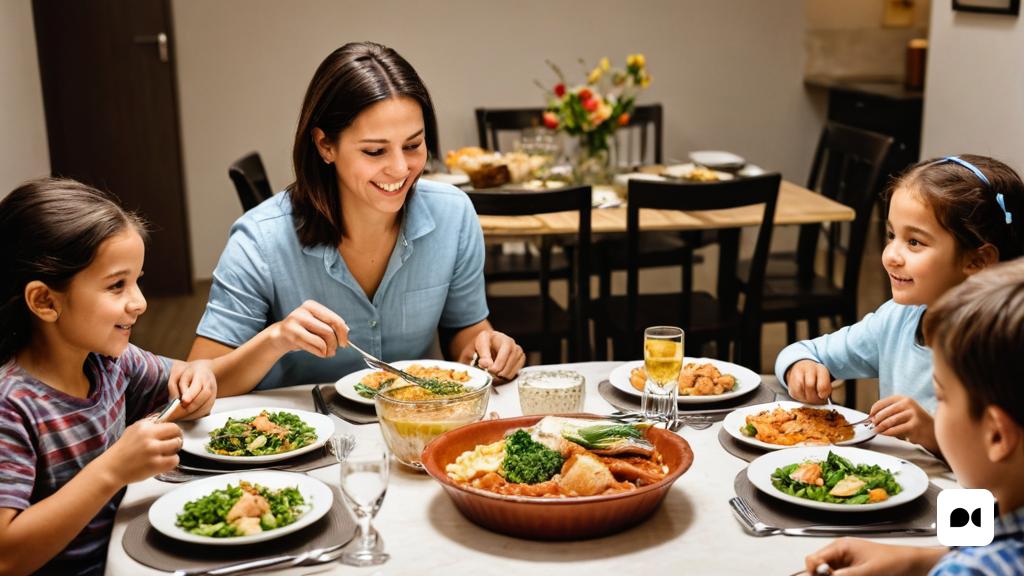Fostering communication and emotional bonds
Dinner time in a family goes far beyond simply sharing food. It is a ritual that, despite the demands of modern life, remains fundamental for family well-being and cohesion. This moment has a significant impact on various aspects of the personal and social development of individuals, especially children. Here we explore why the family dinner is so crucial.
Fostering open and honest communication
One of the main advantages of family dinner is the opportunity it provides for open and honest communication. In a world where busy schedules and digital technologies often interfere with face-to-face interaction, dinner provides a space for family members to talk about their days, share experiences, and support each other. This type of interaction strengthens emotional bonds and fosters a sense of belonging and security.
Development of healthy eating habits
Family dinner is also a crucial time to instill healthy eating habits. Children who regularly participate in family dinners tend to consume more fruits, vegetables and nutritious foods. Parents can serve as role models, demonstrating the importance of a balanced and varied diet. Plus, home-cooked dinners tend to be healthier than fast food options, contributing to better nutrition and long-term health.
Impact on academic performance and child development
Numerous studies have shown that children who participate in frequent family dinners perform better academically. The dinner provides an environment in which parents can become involved in their children’s school life, offering support with assignments and discussing educational issues. This type of participation can foster a positive attitude towards learning and improve school performance. In addition, shared table time fosters social and conversational skills, which are essential for interpersonal and emotional development. Children learn to listen, to express their opinions and to respect those of others, skills that are essential in adult life.
Reduction of risky behaviors
Dinner time may also act as a protective factor against risky behaviors in adolescents. Research has found that teenagers who eat dinner with their families regularly are less likely to engage in activities such as alcohol, drug and criminal behavior. The structure and routine provided by family dinners can provide a sense of stability and support, reducing the likelihood that youth will seek validation or escape into risky behaviors.
Promotion of culture and family traditions
Family dinners are an excellent opportunity to pass on values, culture and traditions. This shared time allows parents and grandparents to tell stories, talk about family history, and celebrate cultural festivities and rituals. These moments create lasting memories and strengthen family identity, providing children with a sense of heritage and continuity.
conclusion
In short, family dinner time is a fundamental pillar for the well-being and development of its members. It goes beyond simple food, including communication, education, health and the transmission of cultural values. In an age where family time can be scarce, prioritizing dinner as a time of daily connection can have profound and positive effects on the lives of everyone in the household. For these reasons, it is vital that families make a conscious effort to maintain and value this daily ritual.

